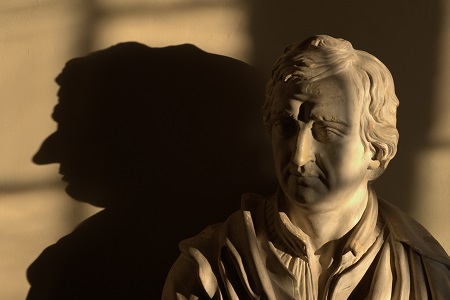5 fascinating facts about Cambridge
There is no denying that Cambridge is a beautiful city, famous for its stunning university and lovely cobbled streets. But there are far many other reasons why Cambridge deserves your attention. For instance:
Discovery of DNA
Cambridge students and bright sparks Francis Crick and James Watson discovered the most important health discovery for decades when they uncovered the secret of DNA in 1953. It was, in fact, hailed as one of the most important discoveries of the 20th century.
The pair didn’t actually come to their conclusions in the university, but rather the pub known as The Eagle, which is still in the city to this day. They received the Nobel Prize in Medicine for their DNA findings in 1962. And on the subject of smart types.
Educated a host of Nobel prize winners
Cambridge may be the smartest city in the world. Well, certainly the university alumnus has 121 Nobel Prizes to their credit, as well as 11 Fields Medals and seven Turing Awards. Oh, and there’s also 194 Olympic medals.
Past Nobel prize winners include Bertrand Russell (Literature), Professor Sir Roger Penrose in 2020 for his discovery of how a black hole relates to relativity (Physics) and Elizabeth H Blackburn (Physiology) for her work on chromosome therapy.
There are more than 100 libraries
Yes, really. The University has a huge number of them, of course, including The Wren Library with the original manuscript of Winnie the Pooh and Isaac Newton’s notebook (the latter includes a special bonus lock of the scientist’s hair).
Trinity Library is the biggest of all, with more than 300,000 books to its credit. At Magdalene College, you will find the library collection of diarist Samuel Pepys, including his original diaries. Another favourite is the Parker Library at Corpus Christi. Here you’ll find ancient volumes of religious texts and on Christianity in particular.


It’s the birthplace of football
Yes, it sounds odd, considering rowing and rugger is more of a varsity sport, but it’s believed football really did originate in Cambridge. That’s because there are notes of a football match in the town as far back as 1579 – the earliest ever recorded in the UK. The University went on to set up rules for the game (referred to as the ‘Cambridge Rules’) then went on to set up games with other universities in the area.
It was important to establish rules after a rumpus outside the campus, as an old University record stated: @BBCiPlayer “…a match between ‘town and gown’ ended in a violent brawl which caused the Vice-Chancellor to forbid the students from playing ‘football’ outside of college grounds!”
Bears were allowed on campus
Annoyed that he couldn’t take his dogs to university lectures at Trinity College along with him, English poet Lord Byron brought turned up with a bear instead. That’s because a bear wasn’t listed as a banned animal by the university’s management. Byron attended the university from 1805 to 1808 and was able to bring the tame bear by exploiting the loophole. Bizarrely, the college management agreed with him.
